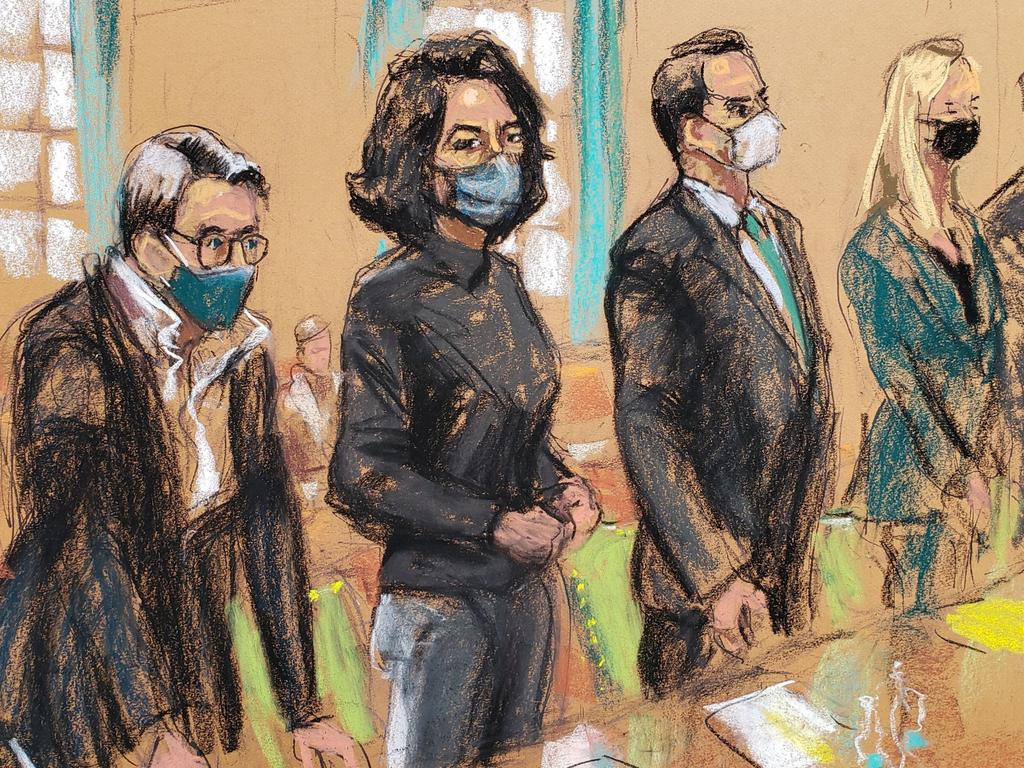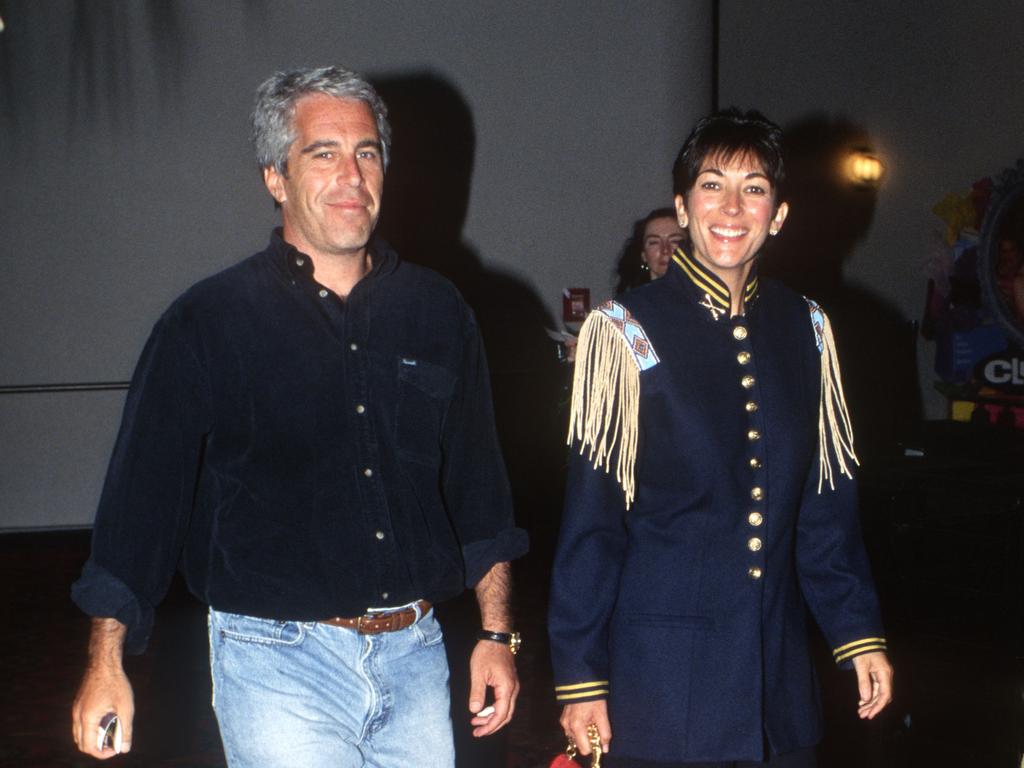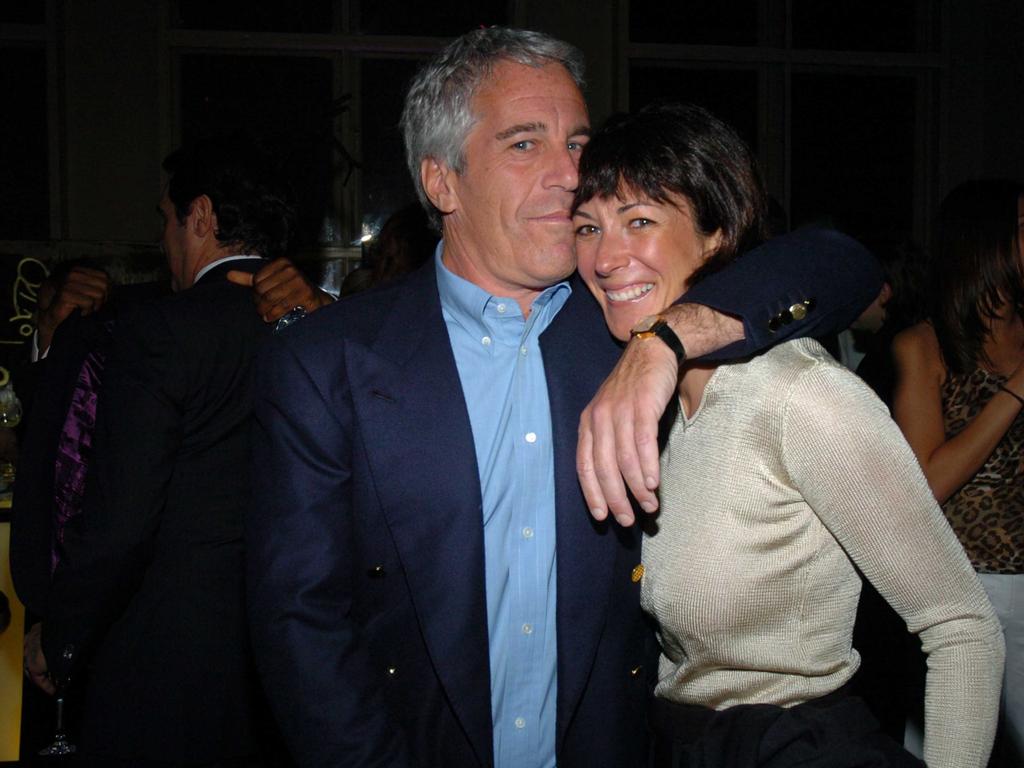Money grabbers and false memories: key pillars of Ghislaine Maxwell’s defence
The socialite accused of child sex trafficking will say she is a scapegoat for Jeffrey Epstein at her trial, which starts today.
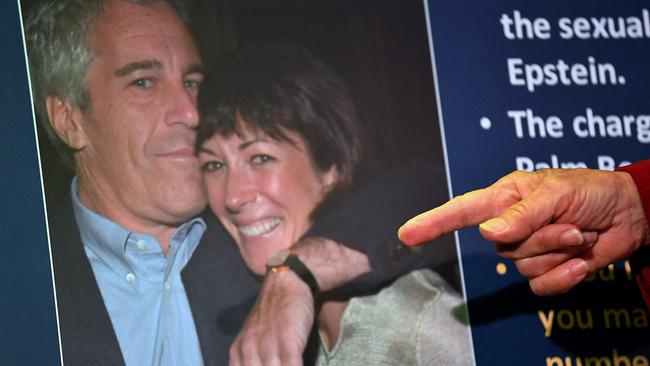
Early on Monday Ghislaine Maxwell will be driven under armed guard past the Statue of Liberty from her prison cell in Brooklyn, where she has been held on remand for more than 500 days, to the Thurgood Marshall United States Courthouse in Manhattan to fight for her life.
Over the next six weeks in courtroom 318, the British socialite and her lawyers will attempt to convince a New York jury that she is innocent of child sex trafficking allegations linked to her former boyfriend, the late financier Jeffrey Epstein.
The charges involve the recruitment and abuse of girls as young as 14 and, according to her own defence team, sex acts of a “morally reprehensible, or even repugnant” nature.
If she is convicted of all six charges, Maxwell, 59, faces more than 80 years behind bars and will almost certainly die in an American jail.
The trial, one of the most eagerly anticipated criminal cases in years, is to hear evidence from at least four women, including a former Londoner, who claim that they were victims of Maxwell from 1994 to 2004.
Here we reveal the key planks of her probable defence:
The “money-grabbers” argument
Maxwell’s lawyers will almost certainly seek to undermine the credibility of her accusers by claiming that they are motivated by money.
Pre-trial court filings allege that the four women have received “millions of dollars” from a compensation fund set up for Epstein’s victims after the tycoon killed himself in prison in 2019 while awaiting trial.
Documents detailing their claims to the Epstein Victims’ Compensation Program, which has paid out a total of dollars 125 million to about 150 women, have been subpoenaed in an attempt by Maxwell’s defence team to “impeach” the accusers or strike out their testimony.
Maxwell has claimed in the past that Annie Farmer, the only accuser to waive her right to anonymity, fabricated her allegations because of a “desire for cash”.
Farmer, a psychologist who says she was abused at Epstein’s ranch in New Mexico when she was 16, previously sued Maxwell and the late financier’s estate in civil proceedings.
During that action, one of Maxwell’s lawyers wrote: “The fact that plaintiff seeks money from the estate and from Ms Maxwell in the millions of dollars at the same time she is a government witness in an upcoming criminal trial on the same topic is reason enough to suspect that her newly asserted memories of abuse without corroboration are not based on the truth or a desire for ‘justice’, so much as her desire for cash.”
Farmer, now 42, strongly rejects the claim.
The false memories expert
Professor Elizabeth Loftus, a leading cognitive psychologist who has previously testified for Harvey Weinstein and OJ Simpson, is likely to be a crucial defence witness. Loftus, 77, will suggest that Maxwell’s accusers may have been influenced by media coverage and conversations with other victims and their lawyers into developing “false memories” of abuse.
Defence filings state: “Her testimony will concern the workings of human memory, the effects of suggestion on memory, the mechanism of creation of false memories, the characteristics of false memories, how memory fades and weakens over time, and how memory becomes more vulnerable to contamination.
“She will describe scientific research showing that false memories can be described with confidence, detail and emotion, just like true memories.
“This can occur when people come to believe in these experiences and are not deliberately lying.”
Loftus, who has appeared as an expert witness at more than 300 trials, once told the Los Angeles Times: “The world is full of people who support accusers.
“I think people who are accused deserve some modicum of support as well.” US prosecutors have sought to have her testimony thrown out but the trial judge, Alison Nathan, decided last week that the jury should hear some aspects of her evidence.
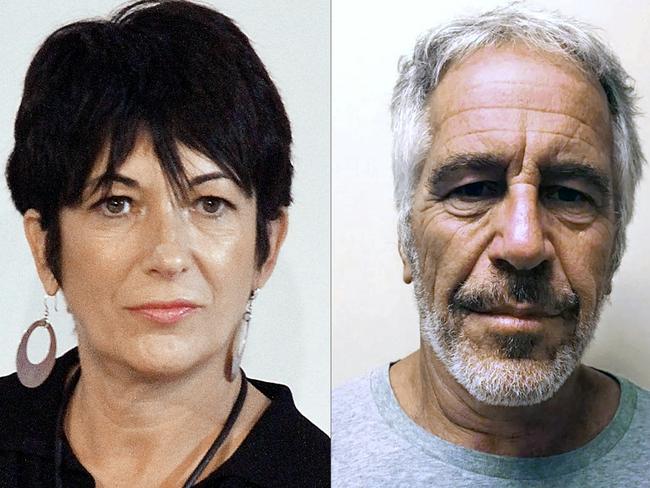
The victims were not all under age
The indictment against Maxwell lists her accusers as “Minor victims 1, 2, 3 and 4” and claims that they were under age when the abuse took place.
The fact that they were children is a highly emotive aspect of the case.
However, Maxwell’s lawyers will point out that one of the accusers, “Minor victim 3”, was 17 at the time she was allegedly abused by Epstein in London, and that the age of consent in the UK is 16.
While the age of consent in many American states is 18, the lawyers are also likely to highlight the fact that it is 16 in New Mexico, where Farmer says she was abused.
An alleged sex act carried out by Epstein on the teenager in London was redacted in court papers submitted to the judge last week by Christian Everdell, one of Maxwell’s defence lawyers. Everdell added: “This testimony does not show Epstein’s ‘sexual preference’ for under-age girls or Ms Maxwell’s knowledge of that alleged preference.
“While some may find this morally reprehensible, or even repugnant, it is perfectly legal.”
She is a scapegoat for Epstein
Maxwell’s siblings insist that the Oxford graduate is being prosecuted as a proxy or “scapegoat” for Epstein after the US authorities failed to prevent his death in custody and to bring him to justice.
This argument is likely to play out heavily in court, with Maxwell’s lawyers emphasising to the jury that their client was not charged in two previous indictments against her former boyfriend.
The first of those indictments resulted in Epstein cutting a plea deal under which he was jailed for only 18 months in 2008 for procuring a child for prostitution in Florida.
By the time of his suicide in August 2019, aged 66, the tycoon was facing far more serious child sex trafficking charges.
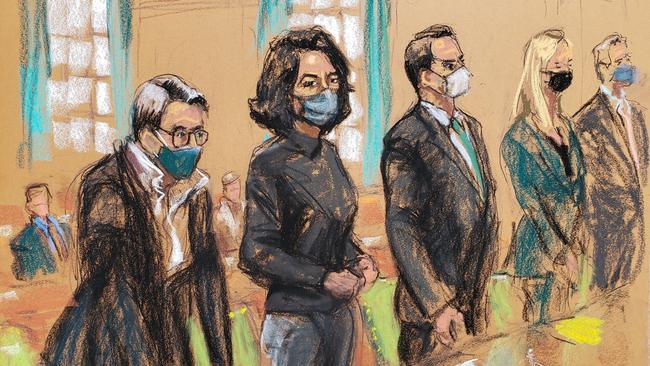
Maxwell was arrested almost a year later after prosecutors vowed to go after Epstein’s co-conspirators.
She has been denied bail repeatedly despite pledging a bond worth $US28.5 million because she is perceived to be a flight risk.
Maxwell’s brother, Ian, believes that the authorities are determined to make an example of her and “have thrown in everything but the proverbial kitchen sink” to convict her.
“The charges she currently faces were brought in an attempt to save face and give the baying crowd a scalp deflecting from the authorities’ own incompetence in allowing Epstein to die on their watch.”
It is impossible to have a fair trial
Lawyers will claim that even before the ink had dried on the charge sheet, investigators had decided that Maxwell was guilty.
In a press conference in July 2020, soon after Maxwell’s arrest, William Sweeney, the FBI’s assistant director for New York, described her as “a villain” who had “slithered away” into hiding after Epstein’s death.
Such language, and the damning media coverage that followed, will make it almost impossible for Maxwell to receive a fair trial, her supporters argue.
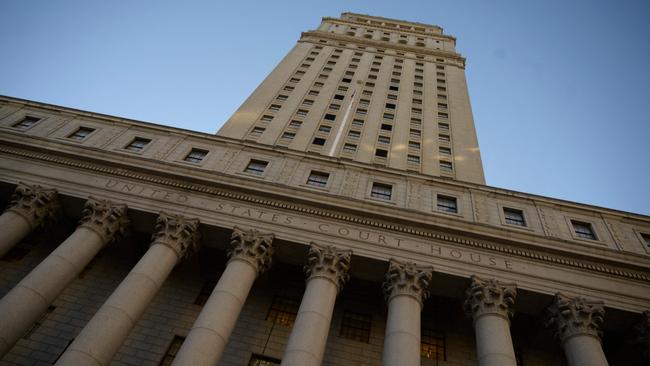
They have even fretted over whether her wealthy background will count against her.
Maxwell’s father, Robert, the publishing tycoon and former owner of the Daily Mirror, died in 1991 after falling off the Lady Ghislaine, a superyacht named after his daughter.
Jurors in her trial were asked before selection if they held strong views about people with “luxurious lifestyles” or had expressed support in the past for the #MeToo movement.
In her instructions to the jury on Monday Judge Nathan will warn jurors to stay away from social media and disregard what they have read in the press so far.
“This case has received, and will continue to receive, significant attention in the media,” she is to say.
“There is no formula to evaluate testimony or exhibits. For now, suffice it to say that you bring with you into this courtroom all of the experience and background of your lives. Do not leave your common sense outside.”
The Sunday Times

